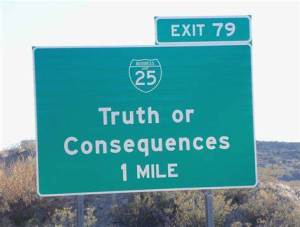An excerpt from the chapter “The Betrayer” from my book Losers Like Us
Was Judas Iscariot predetermined to betray Jesus? Was he placed on this earth solely for the purpose of selling Jesus out? After all, as the syllogism goes: Jesus is God; God is omniscient; therefore Jesus is omniscient. At some point, Jesus had to know that Judas would betray him, so it appears safe to assume that Judas lived only to betray the Messiah and, if so, that he also stood beyond redemption.
But that doesn’t ring true either. It seems to fly in the face of God’s character and of Jesus’s mission. Although I have no qualifications to judge such things, this smacks of injustice to me.
 Another difficult question is, why did Judas do what he did? Was it his inescapable fate? Scripture says he did it because “Satan entered into him” (John 13:27). Similarly, Jesus at one point said directly to Peter, “Get behind me, Satan!” (Matt. 16:23). If both Judas and Peter experienced being taken over by Satan, then why did Peter go on to become a powerful follower of Christ, while Judas went on (as is traditionally assumed) to eternal damnation?
Another difficult question is, why did Judas do what he did? Was it his inescapable fate? Scripture says he did it because “Satan entered into him” (John 13:27). Similarly, Jesus at one point said directly to Peter, “Get behind me, Satan!” (Matt. 16:23). If both Judas and Peter experienced being taken over by Satan, then why did Peter go on to become a powerful follower of Christ, while Judas went on (as is traditionally assumed) to eternal damnation?
Why did Judas betray Jesus? Was it jealousy? Judas was not part of Jesus’s inner circle, made up of Peter, James, and John. Perhaps he thought he should be.
Did he just not connect with the others? Judas was from Kerioth in Judah; he was the only disciple who was not a Galilean. Perhaps he felt subtly excluded or persecuted. Perhaps three years of feeling like an outsider was enough to provoke him.
Did he betray Jesus because of his own guilt? Scripture says that Judas, as treasurer, was stealing from the ministry (John 12:4–6). Guilty people often act defensively and heap blame on innocent bystanders to deflect attention away from their own wrongdoing.
Or maybe, like the other disciples, he truly believed Jesus was the Messiah and just couldn’t understand why Jesus wasn’t setting up his earthly kingdom. Maybe he called in the authorities to force Jesus to “make his move,” either in the garden (perhaps with some supernatural display of power) or in open court.
Scripture says:
When Judas, who had betrayed him, saw that Jesus was condemned, he was seized with remorse and returned the thirty pieces of silver to the chief priests and the elders. “I have sinned,” he said, “for I have betrayed innocent blood.”
“What is that to us?” they replied. “That’s your responsibility.”
So Judas threw the money into the temple and left. Then he went away and hanged himself. (Matt. 27:3–5)
The strong implication is that Judas was truly shocked by Jesus’s sentencing. I think Judas expected that Jesus would somehow rise up and vanquish his accusers, rather than receive a death sentence that, for reasons unknown, he chose not to fight.
This possibility is not so far-fetched. Simon the Zealot probably had similar hopes of revolution in following Jesus, and even Peter used swordplay to fight Jesus’s enemies (John 18:10). Maybe, like virtually all Jews at that time, Judas fully expected that the Messiah would lead a revolution and was just trying to help it along.
Judas’s true motivation for betraying Jesus is a mystery known only to Judas and to God. At any rate, when Jesus is condemned, Judas is “seized with remorse” and kills himself. And with remorse like that, surely there is hope for repentance.
Isn’t there?
For some, it’s a very tricky issue.
Maybe this is why we prefer the simplistic, one-dimensional interpretation of Judas: it’s just easier. Digging deeper opens a tangle of theological questions that can polarize the body of Christ. And while this chapter might seem to be doing just that, it is not my intention. Instead, my purpose is to reflect on the life of Judas Iscariot, chosen personally by Jesus to be his disciple.
It is strange to think of Judas as a disciple when he is seen solely as Jesus’s betrayer. The gospel writers seldom mention Judas outside of his betrayal and never mention anything positive that Judas might have done.
In a way, this makes sense: the gospel story centers on Jesus. The gospel writers couldn’t possibly include everything that happened in those three years, so they focused on what mattered concerning Jesus. And what mattered concerning him with Judas was that Judas betrayed him.
But what else do we know of their relationship during the rest of Jesus’s ministry on earth? Was it a purely professional relationship, with Jesus needing Judas strictly for his leadership abilities and accounting skills as treasurer for the disciples, or for some other assets not named in Scripture?
I don’t think so. I can’t imagine Jesus limiting his interaction with Judas to financial reports given during occasional business meetings.
Remember that Judas—and I can’t repeat this enough—received a personal call from Jesus to join the disciples. When Judas first answered that call, he was not a traitor. He traveled with Jesus and observed Jesus’s ministry. He watched Jesus heal cripples, cure lepers, subdue demons, and even overcome death. He saw Jesus calm a violent storm. He saw thousands flock to Jesus, and he helped distribute a miraculous meal to them from one small boy’s lunch. He walked with Jesus for three years, talked and laughed with him, prayed with him, and listened to him teach. Even after Judas conspired with the religious leaders to betray Jesus, he sat with the disciples at the Last Supper as Jesus washed their feet in a silent act of service. He was just as much a recipient of grace as Peter, James, and the rest.
And I believe he was just as much a friend to Jesus as they. I believe that Judas and Jesus loved each other. After all, the Gospels say that Judas betrayed Christ—not sabotaged or tricked him, but betrayed him. Betrayal is unexpected treachery from a trusted friend. That is what makes it so painful: it is committed by someone close to you, someone into whom you have poured your heart, your life, your love.
In the movie Braveheart, the story of Scottish hero William Wallace, Wallace finds his army being slaughtered by the English. Frantically, he signals his reinforcements to come help him, but instead they desert the battlefield before his eyes. In desperation, he breaks away, commandeers a horse, and gives chase to the king of England.
But a knight cuts him off.
Wallace, knife in hand, overpowers the knight and rips off his helmet.
It is Robert the Bruce, Wallace’s close associate and fellow freedom fighter. He has turned against Wallace to support the English.
At the moment Wallace realizes that he has been betrayed, the light drains from his eyes.
He rolls back on his haunches and lies down as if to die.
The king’s guards quickly surround and arrest Wallace, who offers no resistance. The fight, the passion is gone.
This is betrayal. This is what Jesus experienced. Unlike Wallace, he never gave up, because he knew how the story would end; but even knowing that could not lessen the pain of betrayal.
Did Jesus know in advance that Judas would betray him? He certainly knew at the Last Supper because in Scripture, when the disciples ask who will betray him, Jesus says it is the one to whom he gives the bread and then gives it to Judas (John 13:21–26).
Yet at the same time, several factors here indicate that Jesus is reaching out, encouraging Judas to turn from his treacherous plan and be restored.
First, tradition says that during the Last Supper, Jesus, acting as host, seated Judas at his right—a place reserved for the guest of honor. It may be only tradition, but tradition often is based on ancient knowledge that has since been lost to us.
Second, during the Last Supper, Jesus performs an extremely intimate act of love and service by washing the feet of his disciples (vv. 3–5). Scripture says that all of the disciples were together at this time, so Jesus must have washed Judas’s feet too.
Third, though Jesus announces openly to all the disciples that he will be betrayed, the subsequent dialogue between Peter, John, and Jesus appears to be more private:
After he had said this, Jesus was troubled in spirit and testified, “Very truly I tell you, one of you is going to betray me.”
His disciples stared at one another, at a loss to know which of them he meant. One of them, the disciple whom Jesus loved, was reclining next to him. Simon Peter motioned to this disciple and said, “Ask him which one he means.”
Leaning back against Jesus, he asked him, “Lord, who is it?”
Jesus answered, “It is the one to whom I will give this piece of bread when I have dipped it in the dish.” Then, dipping the piece of bread, he gave it to Judas, the son of Simon Iscariot. As soon as Judas took the bread, Satan entered into him.
So Jesus told him, “What you are about to do, do quickly.” But no one at the meal understood why Jesus said this to him. Since Judas had charge of the money, some thought Jesus was telling him to buy what was needed for the festival, or to give something to the poor. As soon as Judas had taken the bread, he went out. And it was night. (vv. 21–30)
Scripture does not reveal whether the other disciples heard Jesus say that he would give the bread to his betrayer. However, I believe they did not. The reason I believe this is that John, reclining against Jesus, asked his question in an intimate way, and I believe Jesus answered it intimately as well. It is possible that only the disciples nearest Jesus, such as Peter and John, heard Jesus’s remark. I believe Jesus kept this conversation semiprivate, so as not to alienate Judas from the group. Remember, Peter betrayed Jesus not once, but three times—yet he was restored. If Judas were to turn back to Jesus later, as Peter did, then Judas would need the other disciples for healing, forgiveness, and accountability.
Fourth, in the midst of Judas’s betrayal in the garden, right after the fatal kiss that told the Romans whom to arrest, Jesus says to Judas, “Do what you came for, friend” (Matt. 26:50). Jesus calls Judas “friend.” I am certain this was not a sarcastic dig to exacerbate Judas’s guilt, but rather a tiny glimpse into Jesus’s immense love and grace for Judas, even in mid-betrayal.
Thus, in these examples—inviting Judas to the place of honor at the table, washing Judas’s feet, keeping the revelation of Judas’s betrayal semiprivate, and addressing Judas as “friend”—Jesus is showing grace to the one who has already sold him out.
 I wonder what kind of eye contact might have occurred between Jesus and Judas that night, as Jesus washed Judas’s feet, handed him the Passover bread, and received his treacherous kiss. Did Jesus extend a look of grace, communicating that the Son of Man had come to seek and save the lost (Luke 19:10)? Did Judas look away in shame?
I wonder what kind of eye contact might have occurred between Jesus and Judas that night, as Jesus washed Judas’s feet, handed him the Passover bread, and received his treacherous kiss. Did Jesus extend a look of grace, communicating that the Son of Man had come to seek and save the lost (Luke 19:10)? Did Judas look away in shame?
I hope so. He handed over my Savior to be tortured and killed, so I hope he suffered crushing regret. And according to Scripture, he did. That’s why he went out to an empty field and committed suicide.
Sometimes I feel a macabre pleasure in imagining Judas’s worthless carcass rotting in a lonely place. But then I think, how many times have I, like Judas, greeted Jesus with a symbolic kiss of betrayal? How many times have I betrayed my Savior?
Well, that’s just silly: of course I’ve never betrayed Jesus.
Then again, I’ve never been in a position where I was tempted to do so. I think once in grade school I got cold feet and denied being a Christian. Except for that, I have lived pretty openly about my relationship with Jesus. Acknowledging Christ in public has never been a matter that could possibly end my life, as it was for the disciples that night.
And yet …
In the Sermon on the Mount, Jesus reminds his listeners that the law of Moses says don’t murder. Now most people, throughout history, have had little trouble obeying that law. I can honestly proclaim (rather proudly, too) that I have never killed anyone. Ever.
But then Jesus closes the trap: If anyone is angry with another in his heart, he is guilty of murder. And if anyone thinks lustful thoughts, he is guilty of adultery (Matt. 5:22, 28).
This teaching blurs the line between murder and not-murder, or adultery and not-adultery.
Or betrayal and not-betrayal.
So, if you do x in your heart, you have betrayed Christ. But what is x?
It might be different things to different people. Though I am totally open about my Christian faith, I realize that there are times when I still betray Jesus.
If I keep others from seeing Jesus in me by not being Jesus to them, isn’t that a form of betrayal? Yes. I betray Jesus when I refuse to show him to others, when I avoid loving the “least of these” (Matt. 25:44–45), when I fail to pick up my cross and follow him (Luke 14:27). Therefore I am just as treacherous as Judas Iscariot.
I think we all are.
Judas did not commit the unpardonable sin, and he was not the only betrayer. Peter openly denied Christ three times, and the remaining disciples—all but John—abandoned Christ during his trial and hid while the brutal sentence was carried out. They all deserted him when he needed them most.
This too is betrayal.
So why single Judas out as the villain? Is it because his actions, unlike theirs, led to Jesus’s death? Or is it because Judas killed himself before the resurrection—before Jesus could physically say, “I forgive you” and restore him to fellowship?
Does Judas’s suicide disqualify him from redemption?
Does this mean there are limits to God’s grace?
Asking such questions, instead of merely accepting the one-dimensional view of Judas, may stir up controversies, disrupt doctrines, and tear dogma to shreds.
It’s easier to accept the “passion play” Judas and make Judas the unequivocal bad guy. Problem solved.
But the standard passion play scenarios, in replacing Jesus’s true archenemy (Satan) with a human substitute, inadvertently create an impassible chasm between the sin of betrayal, which we all commit to some degree, and the saving grace of Jesus. And if Scripture truly shows Judas as an irredeemable villain, lost beyond hope, then I am beyond hope as well. I desperately need to know that God’s grace is greater than all my sin—even if I, like Judas, die at the wrong time, before God has a chance to extend it properly.
I guess I am tipping my hand here by giving Judas the benefit of the doubt. I would like to think that I will see him in heaven, restored by Jesus and reconciled to the other disciples.
Perhaps this is wishful thinking on my part, and I can already hear the theological debaters spooling up to launch their standard arguments.
However, such debate misses my point.
The ugliness and severity of Judas’s act only forces us to ask: Do we truly believe that God’s grace is deeper even than this? Do we truly believe that forgiveness is available to all sinners who earnestly desire it? Do we truly believe the gospel?
 The other disciples, betrayers all, apparently regretted their sins, found forgiveness, and were restored.
The other disciples, betrayers all, apparently regretted their sins, found forgiveness, and were restored.
Judging from his suicide, Judas apparently regretted his sin as well. Was he forgiven and restored also?
We don’t know that he was.
But we don’t know that he wasn’t, either.
I can’t reflect on Judas without also reflecting on the power of grace. Grace and Judas are inseparably intertwined in my mind.
Strange as it sounds, only after writing about Judas did I realize just how much I needed him.
 Right next to the Easter bunnies, displayed in full glory, stood a chocolate cross.
Right next to the Easter bunnies, displayed in full glory, stood a chocolate cross. This is the curtain that was torn in two. With the cross, God made a way to allow us into the presence of his holiness.
This is the curtain that was torn in two. With the cross, God made a way to allow us into the presence of his holiness. Shouldn’t we celebrate that magnificent event? Not just with the obligatory Easter Sunday service but more like the recent Asbury University revival—twenty-four hours a day, non-stop.
Shouldn’t we celebrate that magnificent event? Not just with the obligatory Easter Sunday service but more like the recent Asbury University revival—twenty-four hours a day, non-stop.


























